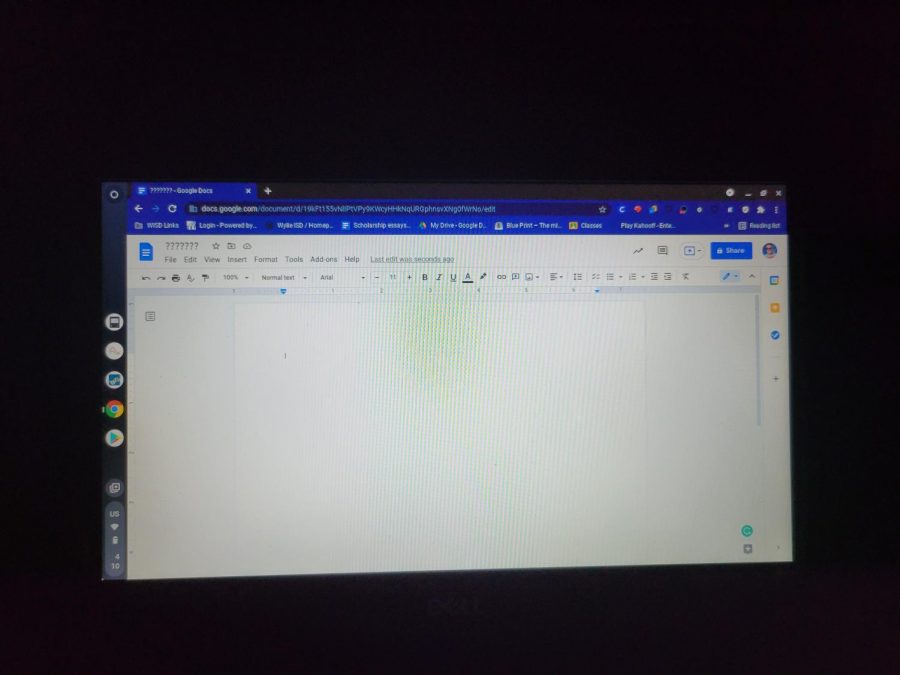Writer’s Block
An editor’s guide on the do’s and don’t’s of writer’s block
photo credit: Heath Hadley
Blank Mind; Blank Page Student struggles to write for an assignment due later in the week. “I believe I usually get writer’s block if I don’t brainstorm beforehand, or am too busy thinking about other things,” senior Mahmut “Matt” Yilmaz said. “I believe that taking the time and planning out what you’re going to write about should take longer than the execution of the writing itself.”
September 10, 2021
Whether it’s a major grade essay due tomorrow, a short answer question in the middle of a test, or maybe even a newspaper story due later in the week, everyone has experienced some form of writer’s block. Some sit staring at a blank page for hours, with nothing written down but a name and maybe a title. Some rack their brain for some sort of solution, and panic as the deadline approaches. An aliment most students dread: Writer’s block.
It is an inconvenience that everyone has and will deal with, and it can be very stressful and scary, especially when pressed for time. So, what should you do?
Stop. First, it is important to just stop. Really. Just entirely stop writing. Staring at a page for another hour is not going to stop that 11:59 deadline from coming. So far, all staring at a page for an extended period of time has done is hurt your eyesight. You can not pull something out of just anything you are looking at.
Drop. Now, leave. Step away from that paper or Chromebook and do something else. Let your subconscious work on the problem for a bit. The subconscious mind is like the search engine on your computer server, it can access everything you know to find a solution.
Roll or something. Watch a TV show, eat a snack, pet a dog, or if really crunched for time take a short walk. If in a testing situation, put that pencil down and lookup. Just for a second. Do something, anything, but think about that essay.
Breathe. Ok, now go back. Try again. Don’t panic, that is how this happened in the first place, but breathe. In. Out. In. Out.
New angles. Try going about it at another angle, because that last one was not working out. While taking a break, the subconscious can still think over problems to find a solution. Look at your topic from a different point of view or approach, and write.
Imperfection. Let the words flow onto the page, and see where they take you. Perfection is impossible, even for just one essay, so don’t worry about proper grammar or sentence structure unless you have already written the piece and can edit it. Otherwise, you are just wasting your time.
Don’t fixate. What you should not do is fixate on your problem. That will give you anxiety, which will then raise your adrenaline and make it harder to think. Staying calm is key.
Don’t fluff it up. You should also avoid writing random fluff in an attempt to get points or just write anything. Whatever you do, have a purpose. Most writing assignments have a clear directive, one that you should follow and not try to see what sticks. Save the brain dump for your brainstorming phase, not when you are actually writing it.
Keep going. Finally, never give up. Anything is better than nothing, so just write. Some essays, especially college ones, are all about getting to know you as a person anyways. When there is no format, you can show what makes you unique. When there is a format, follow it, but do not let the format stop you from writing. The essay comes first, the format is secondary. A good piece of writing shouldn’t need a format, all it needs is to be effective.
Hopefully, this helps to get the wheels turning and the keys typing. A narrow focus can mask the other options there, and taking a break and looking at it a different way will help your essay.



